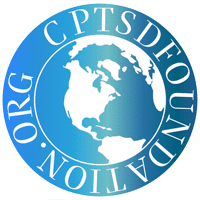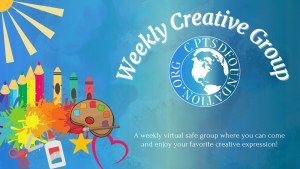Addictions are becoming one of the leading causes of death in the United States claiming 100,306 lives from April 2020 to April 2021, an increase of 28.5% from the same period one year before (CDC).
Loving those who are addicted may be the only answer to saving countless lives, but first, we must take the time to understand what addiction is and how to treat it.
To do this, we must ask the hard questions, “What is addiction?” “Why haven’t we been able to solve or at least successfully treat it?” “What is driving the problem?”
This article will take a hard look at these questions and more.
What is Addiction?
 Addiction is also known as substance use disorder (SUD). According to the American Psychiatric Association, a SUD is a complex medical condition where there is an uncontrolled urge to use and focus on a substance. Some of these may include alcohol, tobacco, illicit drugs, sugar, or prescription medications.
Addiction is also known as substance use disorder (SUD). According to the American Psychiatric Association, a SUD is a complex medical condition where there is an uncontrolled urge to use and focus on a substance. Some of these may include alcohol, tobacco, illicit drugs, sugar, or prescription medications.
SUD leaves people unable to function in their day-to-day lives due to the side effects or the direct effects of the substance. For instance, you might have been surprised to see that sugar was among the substances in the above list. People who are addicted to sugary foods and drinks are often clinically obese and have numerous health issues that affect their lives.
Substance use disorders are associated with many other short and long-term health consequences that vary depending on the substance being abused. The abuse of substances can lead to damaging every organ in the body depending on what substance is being used and the dosage. Some of the side-effects of drug addiction are as follows:
- Weakened immune system
- Nausea and abdominal pain
- Blood vessel infections
- Heart conditions
- Changes in appetite with either unwanted weight loss or gain
- Seizures
- Stroke
- Brain damage
- Problems with memory
- Problems with decision-making
While many of these side-effects alone are fatal, they often are present in groups and that can lead to death.
People suffering from a substance abuse disorder often have distorted thinking patterns and behaviors with changes in their brain causing intense cravings. Brain scans and imaging show changes in areas of the brain related to decision making, memory, and behavioral control.
Addiction isn’t about someone being weak or unable to control themselves when they should, it is rooted deeply in the brain and a propensity to develop a SUD is genetic.
The Problems with Treatment

Only 14% of adults with an addiction problem sought help in the past year, meaning that 86% did not. Among those who sought help, many entered a rehab center to become sober and learn to deal with life without their substance of choice. Rehab centers are not the end-all and be-all of treatment, however, as insurance rarely pays for a long stay which is necessary for people to gain their balance.
There are others addicted to substances that turn to various twelve-step groups for assistance. In these peer-run groups, the addict can find comradery and others who live under the same pressures and emotional upheavals as themselves.
The problem with twelve-step groups is that they tend to focus on sobriety as something they will be forced to work on for the rest of their lives without any hope of healing. While it is true that the triggers that can cause a relapse will always be present, to someone who has been addicted to a substance the idea that they may never succeed is a tough one to handle especially when they try and fail many times.
There are outpatient drug and alcohol counselors who are trained to assist those who live with an addiction, but many who go to them are court-ordered to attend sessions. While this may seem a quick answer to the addiction problem, for some, because it was not the addict’s choice, they will remain sober until after their court-ordered time is up then return to their substance of choice.
The Stigma That Accompanies Addiction
 Stigma, otherwise known as discrimination, is rampant against those who live with a substance abuse disorder. Not only does the person suffering from an addiction face stigma from the general public, but they also face stigma in the one place you’d least expect to find it, among medical professionals.
Stigma, otherwise known as discrimination, is rampant against those who live with a substance abuse disorder. Not only does the person suffering from an addiction face stigma from the general public, but they also face stigma in the one place you’d least expect to find it, among medical professionals.
There is discrimination against those who have developed an addiction problem from the public who sometimes misunderstand what they are seeing. The consensus seems to be that people who are under the influence of a SUD are undisciplined, cowardly, and no good. People tend to believe that people who abuse substances are only those one might see in a homeless camp or out partying.
The truth is that anyone and I mean anyone, when introduced to a substance under the correct circumstances can become addicted. Doctors, lawyers, scientists, and politicians can become addicted, and many are already. So, don’t think for one moment you can point at someone and say definitively that they have a substance abuse disorder, and thank you lucky stars you have not yet fallen, victim.
Stigma in the medical field is outrageous. Doctors and nurses who should know better often show disrespect or don’t listen to addicts who come to them for medical help. These professionals brush under the rug any complaint they receive from someone living with a substance disorder with impunity.
Again, these medical professionals can become victims themselves to the brain chemicals that cause addiction. They need to listen to their patients, care for them as human beings, and bless God that they are not in their shoes.
How Can We Solve the Addiction Problem?

The first step in solving the problem with addiction is to stop it before it begins. This is especially true if the addiction problem is driven by strong, unexpressed emotions that lead a person to search for relief from mental distress.
There are at least three methods to stop addiction before it begins, and it does not include abstinence (although that would be the best and most definitive way to prevent yourself from becoming addicted).
- Understand how substance abuse starts. Most often SUD begins with the usage of addictive drugs such as Hydrocodone more than is prescribed by a doctor. You take one, and that makes you feel good, so you take more. Before you know it, you have a full-blown addiction on your hands. Prescription pain killers are often the first drug used by those who later turn to Heroin.
- Seek appropriate help for mental illness. Unfortunately, substance abuse and mental illness often are associated. If you are living with anxiety, depression, or complex post-traumatic stress disorder you need to seek help from a licensed professional to learn healthy coping skills to alleviate the symptoms before they herd you toward sugar, drugs, or alcohol.
- Look at yourself for risk factors such as a family history of addiction. The more you are aware of what environmental and physical risk factors you may have the more you will be able to overcome them without becoming addicted.
The next step is to help those who are already addicted to finding the help they need. This assistance can come in the form of a rehab center or a private therapist but the professional they seek needs to believe that they can recover and heal. Otherwise, the treatment will not work.
Offering hope and encouragement to someone suffering from an addiction can aid them in overcoming it by giving them something to look forward to instead of that next drink, prescription pill, or cookie.
Ending Our Time Together
I realize that this piece has only brushed the surface of the problem of addiction. To cover every nuance is beyond the scope of this piece. However, I have personal experience with addiction as my mother was an addict her drugs being alcohol and prescription pain killers. I myself have been sober since 2017 from an addiction to prescription pain killers so I understand well this problem.
Until we treat the underlying insecurities and mental difficulties that support addictions it will continue to plague our country and the world. Also, until we understand thoroughly that no one is immune from becoming an addict, we will continue to bury people by the thousands.
Addiction isn’t a pretty topic but one that we as a society must bring out of the shadows if we are to defeat it.
The next time you see someone who you think is addicted to a substance treat them with the respect and dignity that all humans deserve. You may just be the catalyst that helps them get and remain sober.
“The most beautiful people we have known are those who have known defeat, known suffering, known struggle, known loss, and have found their way out of the depths. These persons have an appreciation, a sensitivity, and an understanding of life that fills them with compassion, gentleness, and a deep loving concern. Beautiful people do not just happen.” ~ Elisabeth Kubler-Ross

Holiday Encouragement from CPTSD Foundation

Could you use some extra encouragement during the holiday season? How about one email a day to help you navigate the stress of the holiday season? Sign up for FREE at https://cptsdfoundation.org/winter
CPTSD Foundation Awareness Wristbands

Official CPTSD Foundation wristbands to show the world you support awareness, research, and healing from complex trauma.
The official CPTSD Foundation wristbands were designed by our Executive Director, Athena Moberg, with the idea that promoting healing and awareness benefits all survivors. We hope you’ll consider purchasing one for yourself and perhaps one for a family member, friend, or other safe people who could help raise awareness for complex trauma research and healing.
Each purchase of $12 helps fund our scholarship program, which provides access to our programs and resources to survivors in need.
https://cptsdfoundation.org/cptsd-awareness-wristband/
If you’ve been wondering how our programs work, now you can try out a free sample to see if they’re right for you. We’d love to have you join us in our safe healing space.
You are always worth healing!

Do you like to color, paint, sew, arts & crafts? How about drawing, model building, or maybe cross stitch? Whatever creative activity you prefer, come join us in the Weekly Creative Group. Learn more at https://cptsdfoundation.org/weeklycreativegroup
As always, if you or a loved one live in the despair and isolation that comes with complex post-traumatic stress disorder, please come to us for help. CPTSD Foundation offers a wide range of services, including:
- Daily Calls
- The Healing Book Club
- Support Groups
- Our Blog
- The Trauma-Informed Newsletter
- Daily Encouragement Texts
All our services are reasonably priced, and some are even free. So, to gain more insight into how complex post-traumatic stress disorder is altering your life and how you can overcome it, sign-up; we will be glad to help you. If you cannot afford to pay, go to www.cptsdfoundation.org/scholarship to apply for aid. We only wish to serve you.

My name is Shirley Davis and I am a freelance writer with over 40-years- experience writing short stories and poetry. Living as I do among the corn and bean fields of Illinois (USA), working from home using the Internet has become the best way to communicate with the world. My interests are wide and varied. I love any kind of science and read several research papers per week to satisfy my curiosity. I have earned an Associate Degree in Psychology and enjoy writing books on the subjects that most interest me.




The one addiction that is NOT a substance, but suppresses/represses pain and whatever a person needs relief from, is WORK. This is a part of our culture (as well as many others), and the side effect is cortisol expression. Are you dealing with work addiction. It’s a great way to avoid dealing with one’s issues I wish you would have included this sickness, the inaability to STOP. To BE.
Mental health finally calls it self care, but they neglect naming it for what it is “ADDICTION”. It doesn’t have any STIGMA associated, because our culture says “Yay”, you’ve accomplished this, that or something. Will you name it?
You are right, of course. Work is addictive too for some people. Work is like sugar, people think it is harmless so why stop. Thank you for your insightful comment. I hope others take the time to read it. Shirley